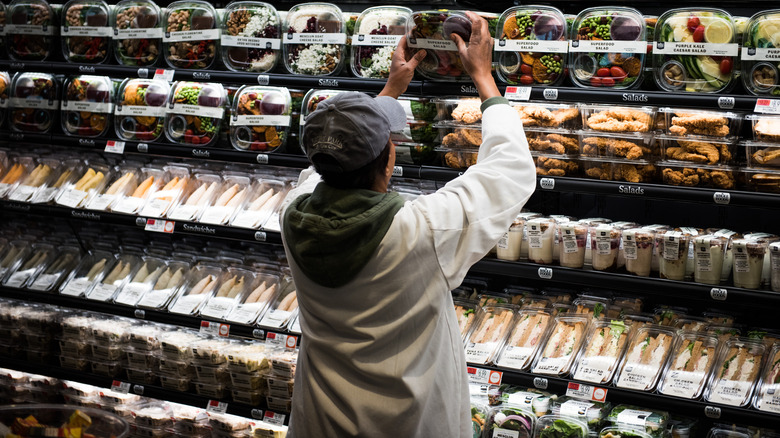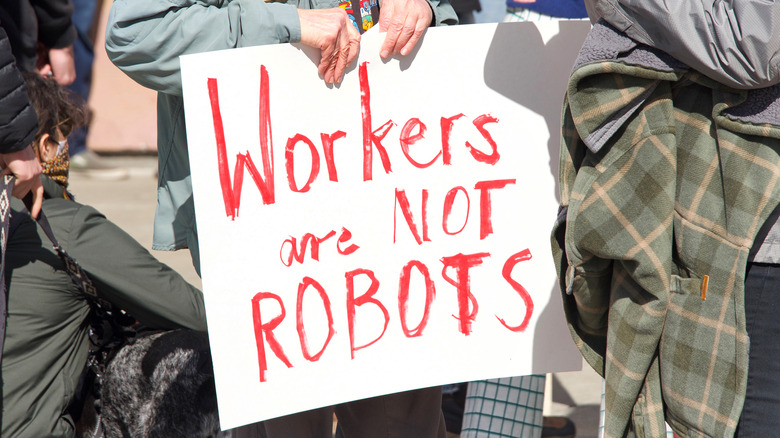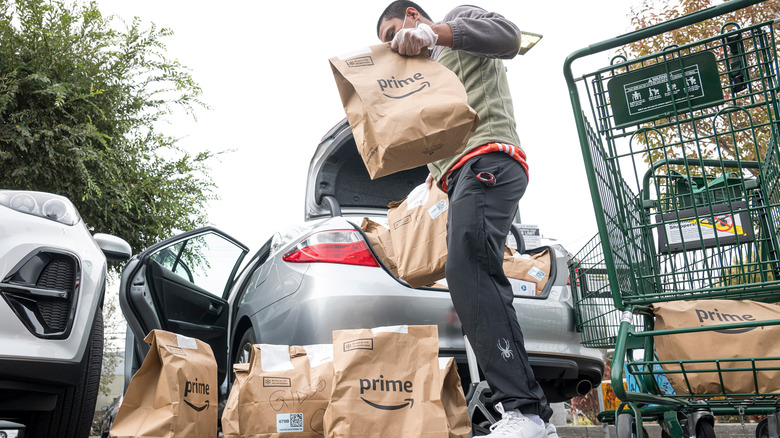Whole Foods Employees Are Seriously Concerned About New Amazon Tech
When Amazon bought Whole Foods back in 2017, a lot of focus was understandably given to how the acquisition would color Amazon's strategy. For example, The Atlantic reported Amazon gained an urban foothold and a series of new potential distribution centers. There was also a lot of talk about what the news meant for Whole Foods employees, with workers concerned they would be replaced with robots or treated differently by the new owner.
Five years later, some Whole Foods employees who fulfill online orders are voicing a new concern, claiming working conditions have increasingly resembled those that define Amazon warehouses. Talking to Insider, five anonymous "shoppers" (which is their official title) described how they are expected to retrieve a certain quota of products per hour. This apparently ranges from 50 items to 80. Though failing to meet these quotas appears to not result in termination or any other punishment, shoppers at some Whole Foods locations said scores are posted for all employees to see which one stated made them "feel like less of a person" if they failed to be as productive as their coworkers.
Whole Foods shoppers feel they're being constantly monitored
In practice, shoppers receive a notification of an order. If a minute passes without a response, they'll be called. Such monitoring goes even further than insistent prodding though. "Everything you click and touch is tracked by Amazon and is important somehow to Amazon," one shopper told Insider. Even with supply chain issues and food shortages rampant, if shoppers find too many out of stock items they are required to get another Whole Foods employee to confirm their work — all tracked in the shopper's app.
This isn't the only surveillance-styled tech to be recently incorporated into Whole Foods, either. Proving those fears of robot replacements somewhat valid, in September Amazon laid out plans to open two cashireless Whole Foods outlets in 2022 (via Shore News Network). To crack down on theft, the company plans to use a system called Just Walk Out, which uses cameras that recognize a shoppers profile to track them and the products they pick up. Customers would then be charged upon leaving the store.
Could this fuel a Whole Foods union push?
The last few years have offered many revelations. But for those in the food industry, one clear lesson is that when workers feel oppressed by their working conditions, they will push for a union. In fact, the purchase of Whole Foods inspired a renewed effort for some stores to try unionizing in 2018, according to The Counter.
In March 2020, many Whole Foods workers conducted a sick-out, reported Vice, because they lacked proper protective measures against the then extremely novel coronavirus. Additionally, the year saw a massive back and forth between Amazon workers' attempts to unionize warehouses and Amazon doing its best to squash any such ideas (via NBC). Between February 2020 and March 2021, Amazon was subject to 37 charges of interfering with workers who wanted to create a union. Despite these efforts, a Morning Consult poll published on February 9 found that union support for employees remains strong amongst voters.
Still, with technology that causes shoppers to feel spied on and quotas that run them ragged, Whole Foods could become a new prong in the battleground between Amazon and its labor force.


